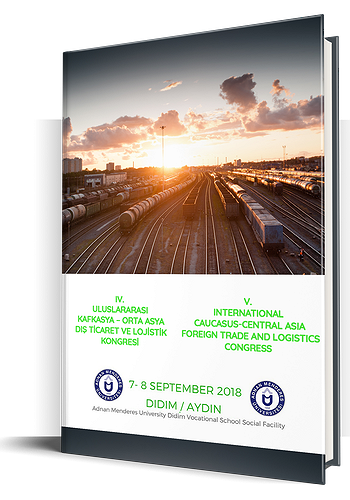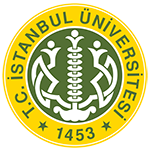
Ulaştırma ve Lojistik Kongreleri
- Türkçe
- Tam Metin
- 2018
Türkiye’de Son Dönem Döviz Kuru Gelişmelerinin Dış Ticaret Hacmine Etkileri
Hatice Armutcuoğlu Tekin
Arş. Gör., Adnan Menderes Üniversitesi, Aydın, Türkiye
Özgür Balmumcu
Dr. Öğr. Üyesi, Adnan Menderes Üniversitesi, Aydın, Türkiye
Ülke ekonomilerinin ticari ve finansal açıdan küreselleşmesi onları, 2008 küresel krizinde görüldüğü gibi, dünya ekonomisindeki dalgalanmalara açık hale getirmiştir. Sermaye hareketlerinin serbestleşmesiyle döviz kuru istikrarının olumsuz etkilendiği; sermaye girişinin döviz kurunu düşürdüğü, sermaye çıkışının ise döviz kurunu yükselttiği görülmüştür. Döviz kurlarının dalgalanmaya bırakılması riski de beraberinde getirmiş, değişen kurların dış ticaret hacimlerini etkilemesi kaçınılmaz hale gelmiştir. Esnek döviz kuru sistemiyle birlikte kur düzeylerinin belirsizleşmesi, özellikle konjonktürün daralma dönemlerinde, riskten kaçınan üreticilerin dış ticaret hacmini daraltmasına neden olmuştur. Bu bağlamda döviz kuru düzeyinin ihracat ve ithalat üzerindeki etkileri teoride öngörülebilirdir. Türkiye’nin dış ticaret hacmi ise, 2001 yılında esnek kur rejimine geçilmesinin ardından önemli gelişmeler kaydetmiştir. Bu süreçte çoğunlukla Türk lirası (£) değerlenmiş, böylelikle hem ithalat artışı hızlanmış hem de ağırlıklı olarak ithal girdilere dayanan sektörlerin ihracat potansiyelleri artmıştır. Ancak özellikle son 4 yıldır görülen döviz kurundaki sürekli yükseliş makroekonomik dengeleri olumsuz etkilemiştir. Bu gelişmenin teoride ihracatı artırması, ithalatı yavaşlatması ve dolayısıyla Türkiye’nin dış ticaret açığını azaltması beklenirken dış ticaret açığının arttığı görülmektedir. Bu bağlamda son dönem döviz kuru gelişmelerinin Türkiye’nin dış ticaret hacmi üzerindeki etkilerini incelemeyi amaç edinen bu çalışma, 2010 yılı başından 2018 yılının altıncı ayına kadar olan dönemdeki döviz kuru gelişmeleri ile imalat sanayi ihracat ve ithalat verileri arasındaki ilişkiye ve perde arkasına odaklanmıştır.
Anahtar Kelimeler: Döviz Kuru, Esnek Döviz Kuru, Dış Ticaret Hacmi, İhracat, İthalat
The Effects of Last Period Exchange Rates Development on Foreign Trade Volume in Turkey
Commercial and financial glabalization of the national economies has made them open to fluctuations in the world economy, as seen in the 2008 global crisis.The stability of exchange rates was negatively affected by the liberalization of capital movements; it is seen that capital inflow decreases foreign exchange rates, while capital outlow increases foreign exchange rates.The fluctuations in the exchange rates has bought along with the risk and it has become inevitable that the changing exchange rates affect the foreign trade volumes.With the flexible exchange rate system, the uncertainty of the exchange rates has caused the risk avoiding producers to narrow the foreign trade volume, especially during the period of the conjuncture shrinkage. In this context, the effects of the exchange rate level on export and import can be predicted in theory. Turkey's foreign trade volume, followed by the transition to flexible exchange rate regime in 2001 has made significant progress. In this process Turkish liras (£) mostly is valued, so that both the increase of imports is accelerated and the export potential of the industry based on imported inputs is increased. However, the continuous rise in the exchange rates seen especially in the last four years has adversely affected the macroeconomic balances. While the increase in exports of these developments, slowing imports and reducing the trade deficit is expected in Turkey, Turkey's foreign trade defict has increased. In this context, this study which aims to examine the impact of the recent exchange rates developments on the foreign trade volume in Turkey focuses on the relationship between exchange rate development and export and import data of the manufacturing industry in the period from the beginning of 2010 to the sixth month of 2018 and behind the scenes.
Keywords: Foreign Trade Volume, Exchange Rate, Flexible Exchange Rate, Export, Import

IV. International Caucasus-Central Asia Foreign Trade and Logistics Congress Proceeding Book
E-ISBN: 978-605-68889-0-8
Sayfa: 470-480

Bu çalışma, kullanan kişilere orjinal çalışmadan alıntı yaptıkları sürece, çalışmayı dağıtma, değiştirme ve üzerine çalışma hakkı tanıyan Attribution 4.0 International (CC BY 4.0) lisansı ile lisanslanmıştır.
İletişim
İstanbul Üniversitesi Ulaştırma ve Lojistik Fakültesi
İ.Ü. Avcılar Kampüsü 34320 Avcılar/İstanbul
ulk@istanbul.edu.tr
+ 90 (212) 440 00 00 - 19200


